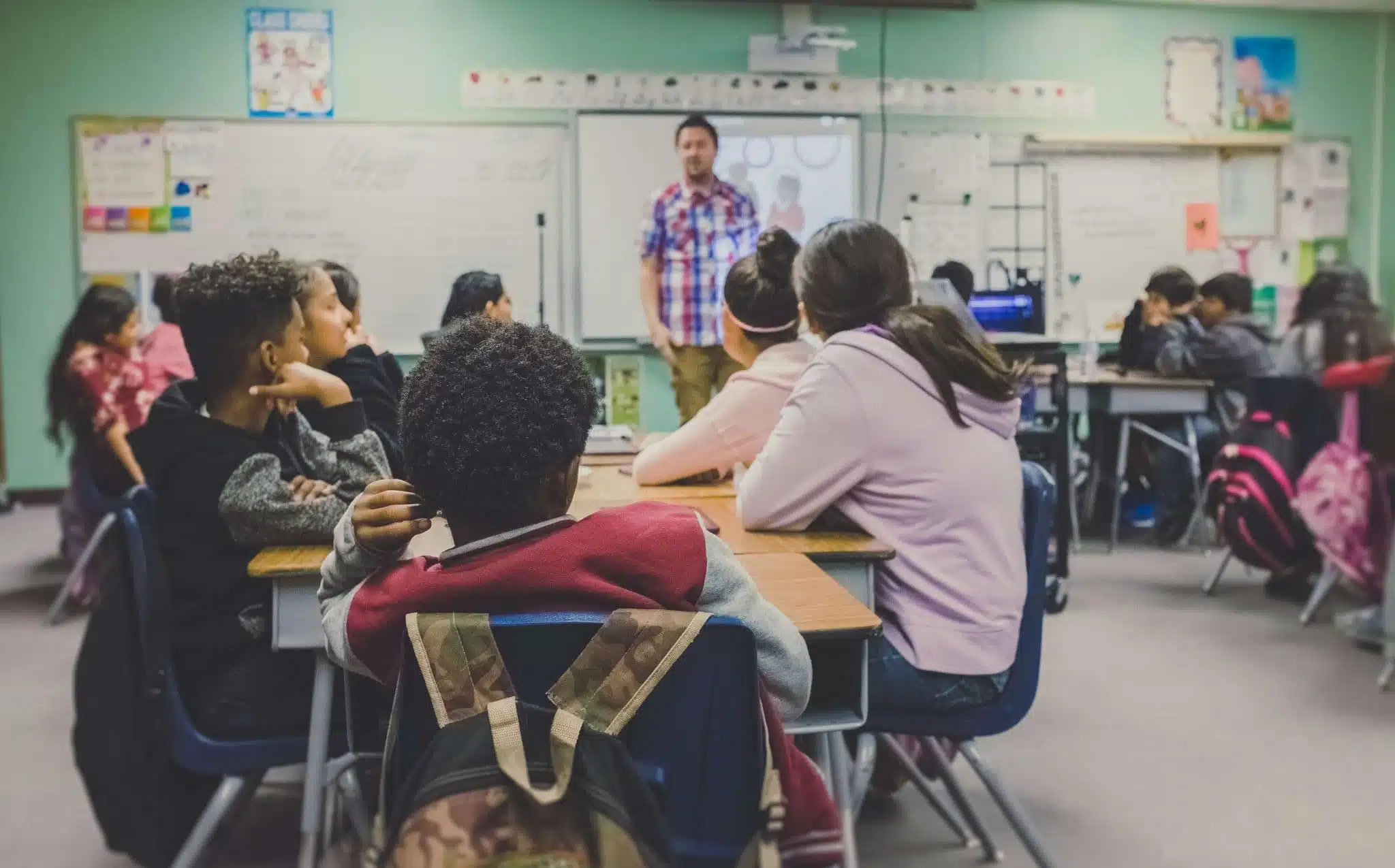Why Is Social Studies Important? 8 Reasons To Study
Updated: August 18, 2025

Social studies. We all have to take it, and teachers have to teach it. But why? What aspects of social studies make it so important that it is always included? Social studies is a discipline that includes humanities such as geography, history, and political science. Why is social studies important? Let’s explore why.
“The primary purpose of social studies is to help young people make informed and reasoned decisions for the public good as citizens of a culturally diverse, democratic society in an interdependent world.”
– National Council for Social Studies
Key Takeaways
- Social studies brings together multiple subjects, such as history, geography, civics, and economics, to give a full picture of how human society works.
- It helps you build essential life skills, such as critical thinking, cultural awareness, and civic responsibility.
- What you learn in social studies connects directly to the real world, from understanding political systems to navigating economic issues.
- It teaches core democratic values like justice, equality, and diversity, helping you become a more informed and active citizen.
What Is Social Studies?
Social studies, often called social sciences, is a field that explores human behavior, relationships, resources, and institutions. It’s an interdisciplinary subject combining geography, anthropology, economics, history, sociology, political science, and civics to offer a comprehensive understanding of society.
Social studies goes beyond memorizing historical dates or political theories. It promotes critical thinking and cultural awareness and prepares students to be informed, active citizens. By studying social studies, you learn to analyze complex issues, understand diverse perspectives, and develop skills for effective civic participation.
The goal of social studies education is to instill values like justice, equality, and respect for diversity. It encourages students to think critically about their role in society and the impact of their actions, nurturing individuals who can contribute positively to their communities and the broader world.

8 Reasons Why Social Studies Is Important For Students
Students learn skills through social studies that help them succeed in further education as well as life. Here are all the amazing ways learning social studies benefits kids and society together:
1. Better Reading And Learning
Social studies helps improve reading skills by connecting your reading to real-world events and themes. Instead of reading in isolation, you’re reading in context, which makes the content more engaging and easier to understand.
How Social Studies Impacts Reading and Learning:
- Encourages reading with purpose by linking texts to real-world topics.
- Helps you understand and analyze complex information.
- Strengthens your ability to write clearly and explain ideas.
Skills That Social Studies Students Get:
- Improved reading comprehension
- Better writing and analysis
- Ability to make connections across subjects
2. Citizen Responsibilities And Values
Social studies helps you understand how society works and your role in it. It shows why civic engagement matters and gives you the knowledge to make informed, ethical choices as a citizen.
How Social Studies Impacts Citizen Responsibilities and Values:
- It teaches you how government works and why your voice matters.
- You learn about the foundations of democracy, law, and public service.
Skills That Social Studies Students Get:
- Civic engagement and awareness
- A sense of ethical responsibility
- Understanding of social justice, equity, and voting rights
3. Cultural Understanding
Through social studies, you gain insight into cultures you may never encounter in daily life. This exposure builds empathy and respect for people from different backgrounds, helping you connect meaningfully in a globalized world.
How Social Studies Impacts Cultural Understanding:
- It introduces you to cultures you may never encounter in daily life.
- It helps you recognize and respect different traditions, beliefs, and ways of life.
Skills That Social Studies Students Get:
- Empathy and open-mindedness
- Cross-cultural communication skills
- Global awareness and respect for diversity
4. Economic Education
Social studies teaches you how economies work and why financial literacy is important for both individuals and society. You’ll learn to think critically about money, resources, and decision-making in real-world contexts.
How Social Studies Impacts Economic Education:
- You learn how the economy functions and how financial decisions affect society.
- Economics is taught through history, politics, and real-world case studies.
Skills That Social Studies Students Get:
- Personal finance literacy
- Understanding of supply, demand, and economic systems
- Decision-making based on real-world economic scenarios
5. Critical Thinking
Social studies challenges you to analyze past events, assess complex situations, and form evidence-based opinions. These skills are essential not only for academic success but also for making sound decisions in everyday life.
How Social Studies Impacts Critical Thinking:
- You analyze past events and explore cause-and-effect relationships.
- You’re encouraged to evaluate arguments, question assumptions, and draw conclusions.
Skills That Social Studies Students Get:
- Logical reasoning
- Decision-making based on evidence
- Ability to form and defend opinions
6. Real-World Understanding
Social studies connects classroom learning to real-world events, people, and issues. It helps you see how history, politics, culture, and economics shape the world you live in today.
How Social Studies Impacts Real-World Understanding:
- It shows you how past events influence current affairs.
- You learn how different societies operate and interact on a global scale.
Skills That Social Studies Students Get:
- Ability to connect classroom concepts to current events
- Understanding of cause-and-effect in global issues
- Broader awareness of social, cultural, and political systems
7. Political Skills
By studying social studies, you learn to understand government systems and participate in civic life. You also learn how to evaluate political ideas and imagine possible improvements for the future.
How Social Studies Impacts Political Skills:
- It teaches how governments function and how laws are made.
- It encourages you to think critically about political systems and policies.
Skills That Social Studies Students Get:
- Knowledge of political structures and processes
- Ability to debate and discuss political topics
- Informed decision-making in voting and civic matters
8. Respect History
Social studies gives you a deeper appreciation of how history has shaped the present. By understanding the past, you can recognize patterns, learn from mistakes, and help build a better future.
How Social Studies Impacts Respect for History:
- It explains how historical events influence current societies and cultures.
- It encourages reflection on past challenges and achievements.
Skills That Social Studies Students Get:
- Historical awareness and context
- Critical analysis of past decisions and outcomes
- Ability to apply historical lessons to modern-day challenges

Qualities Of Purposeful Social Studies
For social studies to be truly effective, it should embody certain key qualities. These attributes ensure that the subject educates, engages, and inspires you. Here are the essential qualities of purposeful social studies:
- Meaningful: Social studies should address relevant topics that resonate with students’ lives and interests, making the subject more engaging and impactful.
- Integrative: This discipline should connect various subjects and real-world experiences, showing how historical events, current affairs, and cultural practices interlink.
- Value-Based: Emphasizes core democratic values such as opportunity, equality, justice, and freedom of speech, helping students understand and appreciate their societal roles.
- Challenging: Encourages critical thinking and in-depth analysis of social issues, prompting students to question, evaluate, and form their own informed opinions.
- Active: Engages students with interactive activities like debates, discussions, and simulations, making learning dynamic and helping them apply their knowledge to real-world situations.
How Can I Enroll in Social Studies?
To enroll in a social studies program, you usually need to meet certain academic prerequisites, which can vary depending on the school and level of study. Many colleges require that you complete introductory coursework in core subjects such as history, geography, or civics.
You’ll typically need to show foundational literacy and math skills at the high school level, while college programs may request transcripts, standardized test scores, or placement exams. These help you analyze complex social, political, and cultural concepts.
In most cases, schools also look for evidence that students can think critically, communicate clearly, and work with diverse perspectives. These skills are central to success in any social studies curriculum.
Bottom Line
Social studies is vital to understanding our world and our place in it. By studying history, geography, economics, and political science, we learn how societies function and evolve. This knowledge helps us appreciate cultural diversity, engage responsibly in our communities, and develop critical thinking skills essential for navigating life’s challenges.
Through social studies, we learn to make informed decisions, understand the complexities of global issues, and see the connections between our actions and the broader world. It equips us to contribute positively to society and fosters a sense of empathy and civic responsibility. As we continue to value and explore social studies, we become better equipped to address the challenges of today and build a more informed, cohesive, and just world for tomorrow.
For those interested in furthering their education in social studies, University of the People offers accessible, tuition-free programs designed to help you make a meaningful impact in your community and beyond.
FAQs
What is social studies?
Social studies is an academic discipline that explores human society and social relationships. It encompasses various fields, such as history, geography, political science, economics, sociology, and anthropology, to comprehensively understand how societies function and interact.
Why is social studies important in the school curriculum?
Social studies is crucial in the school curriculum because it helps students understand the world around them. By teaching them about history, culture, economics, and politics, social studies prepares them to become informed, responsible citizens. This knowledge fosters critical thinking, cultural awareness, and civic engagement.
How does social studies benefit students?
Social studies benefit students by developing their analytical and critical thinking skills. They enhance their understanding and evaluation of information, making informed decisions, and appreciating different cultures and perspectives. They also help them understand their role in society and the importance of civic participation.
What are the key topics covered in social studies?
Key topics in social studies include history, geography, economics, political science, sociology, and anthropology. These subjects cover many areas, such as historical events, cultural practices, economic systems, political structures, and social interactions, providing a well-rounded understanding of society.
How can studying social studies influence future career paths?
Studying social studies can open doors to various career paths, such as education, public policy, law, international relations, social work, and journalism. The skills and knowledge gained from social studies, including critical thinking, research, and communication, are highly valued in many professions.
